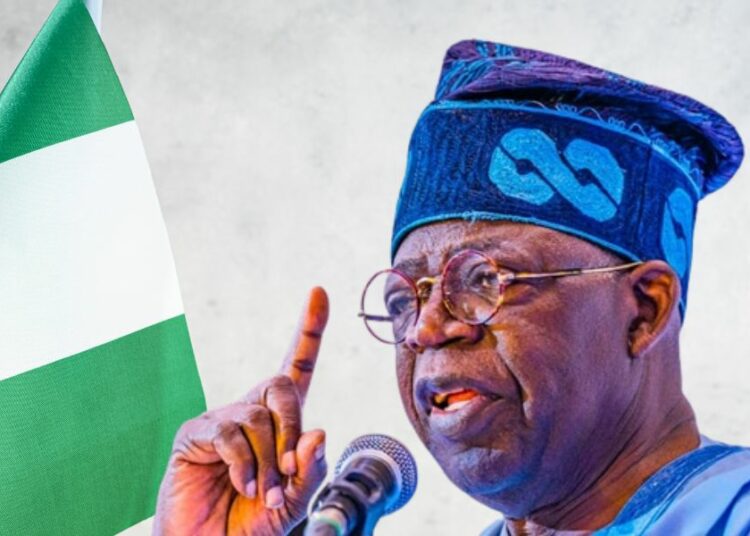President Bola Tinubu’s administration has received a relatively low rating on the political inclusion and economic empowerment of women during its first 18 months in office, according to a report on women’s representation released by Invictus Africa, an organisation that promotes human rights and gender equality through data, technology, and training.
The report titled, “Track Her Report Card,” reveals that only 8 out of Tinubu’s 45 ministers are women, making up just 17%. The report states: “Out of 45 ministers, only 8 (17.8%) are women; out of the 37 Commissioners of Police, only two (5.4%) are women; and out of the 71 Special Advisers, Senior Special Assistants, Special Assistants, and Personal Assistants to the President, only 22 (31%) are women.”
This is despite a court ruling mandating the Federal Government to ensure that women hold 35% of appointive positions. The 35% affirmative action campaign, led by the Nigerian Women Trust Fund (NWTF), resulted in a landmark ruling from the Federal High Court in April 2022, stating that the government must allocate 35% of its appointive positions to women. Unfortunately, both the Buhari administration and the current government have yet to implement the ruling.
The report also highlights the lack of legislation by the National Assembly to promote female employment in government offices and MDAs. It further notes, “No legislation has been made to mandate the federal executive to reserve a minimum number of senior positions for women, and private institutions have not been encouraged to do so.”
Reacting to this report, Zainab Yahaya Tanko, an advocate for gender equality and development professional working with NWTF, said there is still room for improvement to ensure equitable representation that reflects Nigeria’s gender diversity. “Achieving this requires deliberate policies and actions to consistently prioritize gender inclusion in governance,” she said.
Zainab noted that appointments so far still fall short of the 35% affirmative action target upheld by the Federal High Court. “While there have been commendable appointments of women to strategic roles, achieving balanced representation requires a broader commitment to appointing qualified women across all levels of governance,” she added.
She also called on women in both elective and appointive positions to intensify advocacy for gender-sensitive budgeting and policy formulation, while mentoring and empowering other women to prepare them for leadership roles. “Women in corridors of power should create platforms and networks to amplify women’s voices and highlight their contributions,” Tanko said.
She further urged President Tinubu to honour the judgement affirming 35% inclusion for women in appointive positions by implementing and monitoring its enforcement. She also suggested partnering with civil society organisations to identify and support competent women for appointive and elective roles. Another key strategy for promoting gender inclusion, according to Zainab, is “strengthening legal and institutional frameworks to ensure gender-responsive policies and governance practices.”
“Implementing this decision will not only demonstrate compliance with the rule of law but also strengthen Nigeria’s commitment to gender equity and inclusivity in governance, which are essential for sustainable development,” Zainab said.
“Looking ahead to 2025, stakeholders, including civil society, the private sector, and individuals, are encouraged to collaborate in fostering gender inclusion, as it is a pathway to equitable development. “By empowering women and ensuring their meaningful participation, we can build a stronger, more representative, and prosperous Nigeria,” Zainab concluded.











